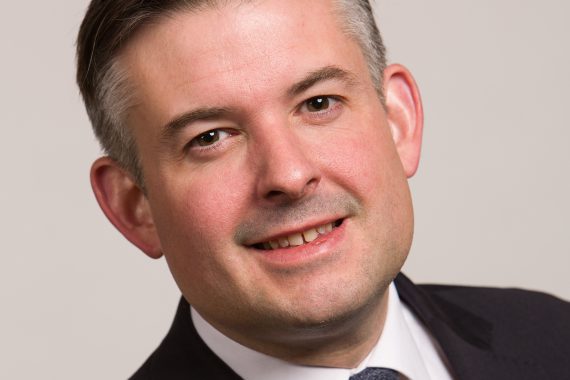NHS long-term plan must ‘keep patients safe from rogue apps’, says Labour

The NHS long-term plan must keep patients safe from ‘rogue apps’ and private technology developers, the shadow health secretary has said.
Speaking at the Labour Party conference, Jonathan Ashworth criticised health secretary Matt Hancock’s ‘astonishingly naïve’ comments about GP at Hand and his ‘rush to endorse privately run online GP services’.
This comes after Mr Hancock said that he wanted GP at Hand to expand and for all patients to have access to a Babylon-style service.
In a speech outlining Labour’s priorities for the NHS 10 year plan, Mr Ashworth said: ‘[It] must come with clear rules on safer NHS staffing; a beefed-up role for medical examiners; and proper rules to keep patients safe from rogue apps and private tech developers.
He added that if the Government does not meet these demands, ‘Labour will amend the upcoming health service safety investigations bill to force these changes through ourselves’.
Mr Ashworth then called out health secretary Matt Hancock, for his support for private apps such as Babylon’s GP at Hand.
He said: ‘There is a huge threat to patient safety from the health secretary’s rush to endorse privately run, online GP services without proper mechanisms in place to protect patients.’
Speaking to Pulse, he continued: ‘I think it’s astonishingly naïve the way the health secretary is pushing this app [GP at Hand]… He doesn’t appear to be waiting for the proper review of it.’
BMA council chair Dr Chaand Nagpaul said: ‘We note the health secretary’s commitment to innovating and developing IT services in primary care but it is vital that such initiatives are rigorously evaluated to ensure patient safety is not compromised.
‘There is a greater pressing need for basic IT infrastructure across the health service to be improved, so that doctors working in GP practices and hospitals have timely access to secure electronic patient information to provide seamless and optimal care.’
Pulse October survey
Take our July 2025 survey to potentially win £1.000 worth of tokens












